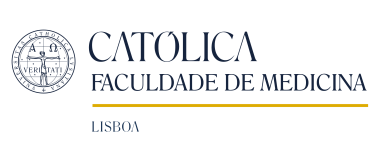Católica Medical School
E-mail: medicina.fm@ucp.pt
Phone: (+351) 218 724 200 (Monday to Friday from 9:30 a.m. to 1 p.m. and from 2:30 p.m. to 5:30 p.m.)
Sintra Campus
Estrada Octávio Pato
2635-631 Rio de Mouro



The PhD in Medical Sciences is based on the idea that there is a set of skills, competences and knowledge that is considered essential for any PhD student. Therefore, the common core offered in the first year of the programme was designed to provide students with the essential competences of a researcher in Medical Sciences.
However, it is considered that each doctoral student, with their own academic and professional profile, also needs distinct and individual training. This is why optional training programmes have emerged, which can take different formats (e.g. more traditional curricular units, laboratory or professional internships, workshops, advanced courses, rotations, external courses, scientific publications and communications, teaching activities) and include different areas such as Medicine, Dentistry, Biomedical Sciences and Sciences applied to Medicine.
All the curricular units offered in the syllabus, whether compulsory or optional, are designed so that the student can actively participate in them, with teaching and assessment methodologies of a practical type, promoting problem-solving, constant reflection on their own learning and how to carry out research in a responsible and independent manner.
The organisation and planning of the curricular units offered, as well as the methodologies and skills to be developed, have been designed to meet the different needs and profiles of researchers, giving them a high level of control and autonomy over their own learning.
With student-centred teaching, in which everyone can build their own training path according to their profile, it is necessary to ensure that all students are accompanied and guided throughout the 4 years. The Thesis Monitoring Committee (CAT) is therefore set up in the first year of the course to monitor students and support the guidance team to ensure that the curricular units (or training options) attended are the most appropriate and complementary. Feedback is also strongly emphasised in the assessment methodologies of the course units offered.
The CAT is normally made up of 3 members of the teaching team and will individually accompany each student throughout their academic career, giving them the necessary tools to help them design their own path.






